Many of those who voted Remain in the EU Referendum are campaigning to overturn Brexit. Suppose the UK abandoned Brexit, what would happen then?
Read on to discover how strong the UK would become within the EU and what would happen over the decade or two after abandoning Brexit. Click on the links in this article to check any point from original sources.
If the UK decided to abandon Brexit it would, eventually, have to accept the European project. We can see that having opt outs from the single currency and defence etc. has separated the UK from the EU and if these continue Brexit will happen again and the unity of the EU will be hindered. Brexit has already stimulated the EU towards closer union.
All of the EU countries except Denmark, the UK and Malta signed a Defence Pact before Christmas that will achieve convergence between European armies so that they will, over the next decade or so, achieve unified equipment, training and, finally, command. The new pact is described in the publication Euractiv. Notice that the members of the Defence Pact are largely Eurozone countries. The unification of French and German military machines means that the objective of peace between France and Germany will be achieved whether or not the UK Remains in the EU. The UK always opposed EU military union and it is Brexit that has given the Eurozone the chance to unite.
The EU is evolving rapidly into two blocs, the first bloc being the 19 countries united in the Eurozone and the second bloc is the UK and Denmark (there are also 7 countries waiting to join the Eurozone). Cameron’s renegotiations before the Referendum were about this new reality: “There are today effectively two sorts of members of the European Union. There are Euro members and non-Euro members.” Cameron failed to get a satisfactory answer to the problem of the balance of power between the UK and the Eurozone within the EU. Let us take a closer look at the Eurozone and this balance of power.
The Eurozone has a single central bank, the ECB, and a group of Finance Ministers, the Eurogroup, who control the Eurozone economy. The national budgets of Eurozone countries must be approved by the Eurogroup which sets firm boundaries for Eurozone economies. These boundaries are enforced according to the Stability and Growth Pact and the regulations for the Eurogroup that have been made since the Pact was signed. The stated purpose of the Pact and Regulations is Eurozone economic convergence so that Euro economies operate as one.
The economic and military unification of the EU is proceeding apace since the EU Referendum because the UK is no longer hindering that unification (for instance by using its veto on the ATHENA committee on EU defence spending, one of the few vetoes that the UK can use). EU countries now adhere to a Common Foreign and Security policy and are not supposed to pursue independent foreign policies. (See Treaty on European Union Articles 24,34,42). Were the UK to abandon Brexit the EU will consist of an increasingly united Eurozone and the UK and Denmark.
Why does it matter that the EU is becoming the Eurozone plus the UK? The UK agreed in the Lisbon Treaty (2009) to phase out almost all vetoes by November 2014. This means that ordinary EU government now occurs according to “Qualified Majority Voting”.
Qualified Majority Voting is an important change that marginalises the UK in the EU. As it says in the Treaty on European Union 16:3. The Council shall act by a qualified majority except where the Treaties provide otherwise.” The UK has 8.5% of the votes in the EU Council so in practice the UK and Denmark must adhere to EU policies that are designed for the benefit of the Eurozone/Eurogroup. Even David Cameron, leader of the Remain campaign, was uneasy about this marginalisation of the UK.
The politics of the EU look difficult for the UK: the Eurozone has far more influence than any single European country but it is concluding trade and foreign policy deals that are in the interests of the Eurozone so the increased power of the Eurozone is not in the interests of the UK. Not only does Eurozone foreign policy deal mainly with the Eastern and Southern borders of the EU, the economics of the Eurozone seriously affect the UK in the long run.
Were the UK to Remain in the EU, or even the Single Market (Common Market) it would continue to experience the current huge trade deficit with the Eurozone (almost £70bn per year).
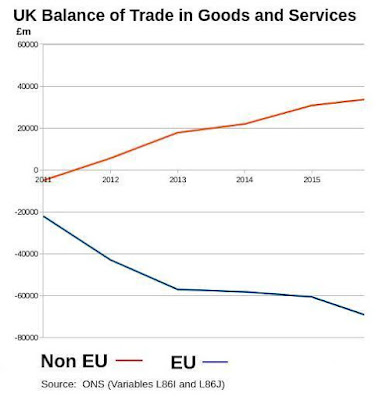 See See |
| Balance of Trade in Goods and Services EU 28, Balance of Trade in Goods and Services NON-EU 28 |
This deficit is not the result of poor performance by UK exporters. UK exporters are, as can be seen from the graph, doing extremely well outside the EU. The huge trade deficit with the Eurozone is the result of the “regionalisation” of the UK economy. The UK is experiencing the same process within the EU as the Scottish and Welsh have experienced within the UK. Prosperous companies in the SE of England can buy businesses in the regions and use their factories and staff in the SE to supply the regional businesses. This process shifts wealth from the regions to the centre of a country. The same regionalisation happens with the UK in the EU. In the EU the French government buys a car factory in the UK and uses it to make Peugeot or Renault-Nissan cars etc., supplying 75% or more of the parts from their Eurozone factories, replacing UK production with Eurozone production. Lidl, EDF, BMW etc. etc. are all doing this in the UK and this results in regionalisation. The huge Trade Deficit between the UK and Eurozone is direct evidence of this regionalisation of the UK within the EU. The imbalance of trade with the Eurozone directly lowers UK GDP by 4% pa (Exports-Imports are used in the calculation of GDP, also see Note 1 below).
Regionalisation has a cumulative effect because each year it removes ever more quality employment and capital from the regions. Each year the UK region of the EU loses ever more quality employment and capital.
At present the UK is expanding its GDP without investing in increased productivity, it lacks quality employment and capital. As a result UK wages have been steady or declining for almost a decade.
Unable to increase the output per worker, many companies that operate in the UK have been expanding their profits by employing more workers, most of whom come from abroad, especially from the EU.
The net result is that UK public services are under continual strain as 500,000 to 600,000 new people, workers and their families, enter the population every year. The reason that productivity has not been growing is regionalisation within the EU (low quality jobs are made available to UK workers whilst high quality jobs remain in the Eurozone) and EU regulations that prevent the government from providing preferential loans for UK businesses to automate and speed production.
The trade deficit with the Eurozone contributes to an overall Balance of Payments Current Account Deficit:
This deficit is largely with the EU. In the long run, currencies decline in the face of persistent Current Account Deficits: “A persistent current account deficit could lead to a sudden adjustment in capital flows or depreciation of the exchange rate, with adverse consequences for UK financial stability.” Bank of England Of course, we have seen this fall in the value of the pound, especially since 2014 as the Trade Deficit widened (the pound fell sharply after the Referendum but by far the greatest loss of value from 2014-17 was due to the Balance of Payments Deficits).
The overall effect of the UK remaining in the EU is as follows: Qualified Majority Voting means the UK has little say in EU affairs which are organised to benefit the Eurozone, the Single Market means that the UK is becoming steadily regionalised with a low productivity economy destined for long-term decline, the unified Eurozone defence forces mean that the UK will be committed to wars that are in the interests of France and Germany rather than in the UK national interest and the pound will continue to decline steadily.
So much for the cons of remaining in the EU, what of the pros?
The most important “pro” is ease of migration. Many Remain voters have imagined themselves having careers in the Eurozone or wish to have the option of migration to the Eurozone available to them. Many scientists and academics are in this category of basing their careers on ease of migration. Many others like the idea of being able to leave the UK if its economy is less advantageous than the Eurozone economy.
Another “pro” is that the combined defence forces of the Eurozone will feel able to play brinkmanship with Russia. Remember that the EU has a huge frontier with Russia and its allies so, for Eastern Europeans and Germans standing up to the Russians is very important. The Eurozone army should be sufficient for this task but many Remain voters enjoy the idea of British forces boosting EU military power in the East.
Another “pro” for some Remain voters is that EU politics will have a large impact of the world stage, if the EU has left wing politics then the world can be gently moved leftwards. Indeed, some far right parties in the EU are now regularly meeting with the idea of creating a far-right EU.
Many Remain campaigners are immersed in “group think” in which the EU is conceived as being like its predecessor, the EEC, with vetoes freely available and a hint of paradise on the side. Most Remain campaigners have been blind to the fact that the Eurozone is moving rapidly towards the Treaty objective of “Ever closer union” so that now the EU consists of two countries, the Eurozone and the UK. Remain either refuse to think about the current and future state of the EU, dwelling on the possible historical advantages of the EEC, or flatly deny the opening preamble to the Treaty on European Union which states that the EU is:
“DETERMINED to lay the foundations of an ever closer union among the peoples of Europe”
Overall the UK is divided between those who put their ability to leave the population of the UK behind if the country becomes regionalised and those who want to guard the interests of the settled population of Britain. It is the same divide as between those who currently leave their friends behind to work in the cities and their deserted friends and families.
Note 1: Outside the Single Market the UK can hinder the movement of people and capital and insist that productive facilities owned by EU companies use a minimum amount of locally produced materials and high quality labour.
This post was originally published by the author on his personal blog: http://pol-check.blogspot.com/2017/12/the-pros-and-cons-of-remaining-in-eu.html
 Daily Globe British Values, Global Perspective
Daily Globe British Values, Global Perspective



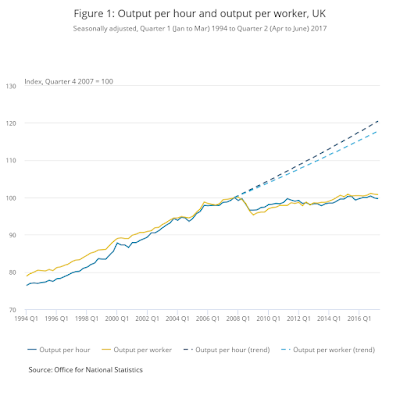
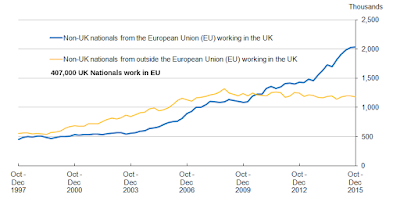
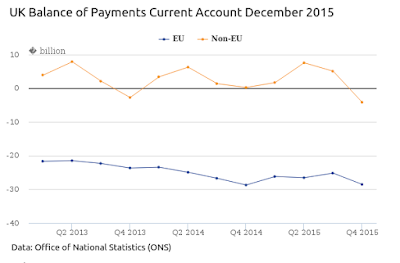
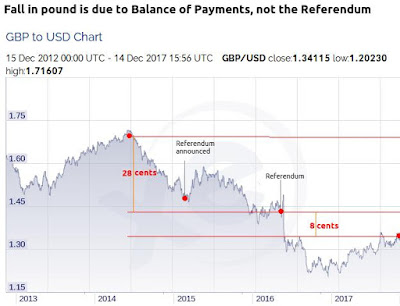

Hope May understands this. Obviously, we are better OUT than in.